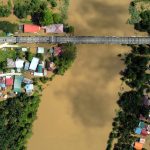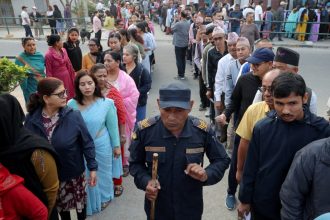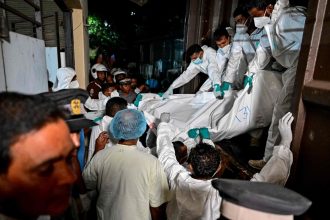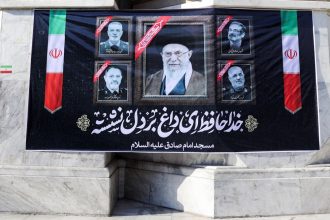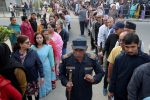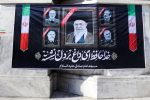DOHA, Sept 15 — In a powerful appeal to the international community, Qatar’s Prime Minister Sheikh Mohammed bin Abdulrahman Al Thani has called for an end to “double standards” and demanded that Israel be held accountable for its actions in Gaza. His remarks came just a day before a high-stakes emergency summit in Doha, convened in response to a controversial and unprecedented Israeli strike on Hamas officials on Qatari soil.
The airstrike, carried out by Israel—an ally of the United States—on the territory of another US ally, Qatar, has ignited a firestorm of global condemnation. Even former President Donald Trump, despite his strong support for Israel, criticized the attack. Nevertheless, he dispatched Secretary of State Marco Rubio to Israel as a symbolic gesture of alliance.
The emergency summit, scheduled for Monday, will bring together leaders from across the Arab and Islamic world in a united front. The gathering aims to amplify global pressure on Israel, demanding an end to the escalating humanitarian crisis in Gaza.
“The time has come for the international community to stop using double standards and to punish Israel for all the crimes it has committed,” Sheikh Mohammed declared during a preparatory meeting. “Israel’s war of extermination in Gaza will not succeed. What is encouraging Israel to continue… is the silence, the inability of the international community to hold it accountable.”
Global Participation Signals Growing Unrest
Leaders such as Iranian President Masoud Pezeshkian, Iraqi Prime Minister Mohammed Shia al-Sudani, Turkish President Recep Tayyip Erdogan, and Palestinian President Mahmoud Abbas are expected to attend the summit. Whether Saudi Arabia’s Crown Prince Mohammed bin Salman will join remains uncertain, although his recent visit to Qatar suggests alignment with the region’s concerns.
According to Qatar’s Foreign Ministry spokesperson Majed al-Ansari, the summit will deliberate on “a draft resolution on the Israeli attack on the State of Qatar,” signaling a shift from diplomatic rhetoric to policy action.
A Broader Regional Crisis
Turkish Foreign Minister Hakan Fidan echoed a deeper concern, stating on Al Jazeera that Israel’s actions have outgrown the bounds of the Palestine-Israel conflict. “The biggest problem right now is Israeli expansionism in the region,” he said. “Arab and Islamic countries must come together and find a solution based on this newly defined problem.”
Analysts say the summit will also serve as a pressure point for Washington. “They will seek stronger US security guarantees, as Israel’s actions have exposed the inadequacy of current assurances and damaged America’s credibility in the region,” noted Elham Fakhro of Harvard’s Middle East Initiative.
Karim Bitar, a lecturer at Sciences Po in Paris, labeled the summit a “litmus test” for Arab and Muslim leadership. “People are tired of empty statements. What’s needed is bold, unified action—one that sends a message to both Israel and the United States that the time for impunity is over.”
Hope for a Unified Voice
Qatar plays a complex role in the conflict, housing the largest US military base in the region while also serving as a mediator in the ongoing war between Israel and Hamas, alongside Egypt and the United States. Sheikh Mohammed’s recent visit to Washington and dinner with President Trump adds another layer to Qatar’s diplomatic juggling act.
Meanwhile, Hamas politburo member Bassem Naim expressed hope that the summit would yield “a decisive and unified Arab-Islamic position” against Israeli aggression.
In the End, It’s About Humanity
Behind every policy, every summit, and every speech, there are lives at stake—innocent families caught in the crossfire, children growing up amid rubble, and generations longing for peace. Sheikh Mohammed’s plea is not just a political statement; it’s a call to conscience.
As the world watches Doha, one thing is clear: silence is no longer neutral. It is complicity. And history will remember who stood up—and who looked away.

